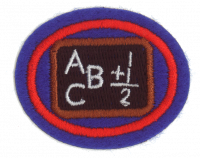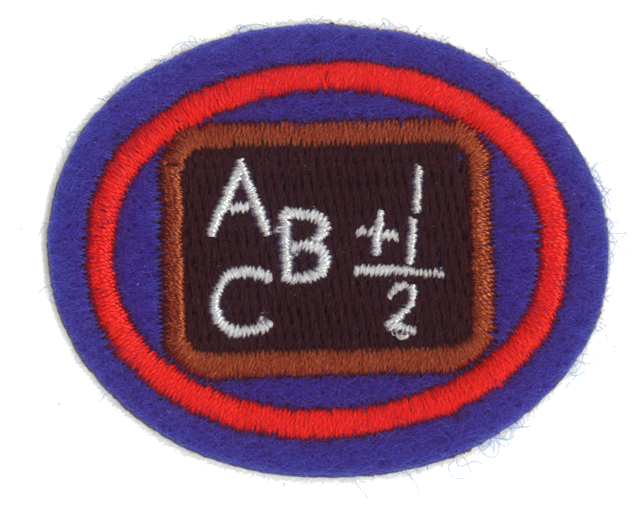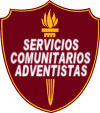Difference between revisions of "AY Honors/Tutoring/Answer Key/es"
(Created page with "</noinclude>") |
(Created page with "</noinclude> <!-- 1. Estar por lo menos en el octavo grado. -->") |
||
| Line 2: | Line 2: | ||
<section begin="Body" /> | <section begin="Body" /> | ||
{{ansreq|page={{#titleparts:{{PAGENAME}}|2|1}}|num=Prologue|dispreq={{Localize|Prologue}}}} | {{ansreq|page={{#titleparts:{{PAGENAME}}|2|1}}|num=Prologue|dispreq={{Localize|Prologue}}}} | ||
| − | <noinclude> | + | <noinclude></noinclude> |
| − | </noinclude> | + | <!-- Prólogo: Esta especialidad solamente está disponible para los clubes dentro de la División Norteamericana. Para aquellos que están fuera de la División Norteamericana, desarrolle en su lugar la especialidad de [[AY Honors/Literacy|Alfabetización]]. --> |
| − | <!-- | ||
| − | |||
{{ACS Honor/es}} | {{ACS Honor/es}} | ||
| Line 12: | Line 10: | ||
{{CloseReq}} <!-- Prologue --> | {{CloseReq}} <!-- Prologue --> | ||
{{ansreq|page={{#titleparts:{{PAGENAME}}|2|1}}|num=1}} | {{ansreq|page={{#titleparts:{{PAGENAME}}|2|1}}|num=1}} | ||
| − | <noinclude> | + | <noinclude></noinclude> |
| − | </noinclude> | + | <!-- 1. Estar por lo menos en el octavo grado. --> |
| − | <!-- 1. | ||
| − | |||
| − | |||
<noinclude></noinclude> | <noinclude></noinclude> | ||
{{CloseReq}} <!-- 1 --> | {{CloseReq}} <!-- 1 --> | ||
{{ansreq|page={{#titleparts:{{PAGENAME}}|2|1}}|num=2}} | {{ansreq|page={{#titleparts:{{PAGENAME}}|2|1}}|num=2}} | ||
| − | <noinclude> | + | <noinclude></noinclude> |
| − | </noinclude> | + | <!-- 2. Leer la historia de Felipe dando asesoría al eunuco etíope en Hechos 8:26-20. --> |
| − | <!-- 2. | ||
| − | |||
| − | |||
| − | |||
| − | |||
| − | |||
| − | |||
| − | |||
| − | |||
{{clear}} | {{clear}} | ||
| Line 48: | Line 34: | ||
{{CloseReq}} <!-- 2 --> | {{CloseReq}} <!-- 2 --> | ||
{{ansreq|page={{#titleparts:{{PAGENAME}}|2|1}}|num=3}} | {{ansreq|page={{#titleparts:{{PAGENAME}}|2|1}}|num=3}} | ||
| − | <noinclude> | + | <noinclude></noinclude> |
| − | </noinclude> | + | <!-- 3. Describir las condiciones sociales que hace que sea más difícil para los niños no privilegiados adquirir habilidades básicas de lectura y matemáticas durante la escuela primaria. --> |
| − | <!-- 3. | ||
| − | |||
| − | |||
| − | |||
| − | |||
| − | |||
| − | |||
| − | |||
| − | |||
| − | |||
| − | |||
| − | |||
| − | |||
| − | |||
| − | |||
<noinclude></noinclude> | <noinclude></noinclude> | ||
{{CloseReq}} <!-- 3 --> | {{CloseReq}} <!-- 3 --> | ||
{{ansreq|page={{#titleparts:{{PAGENAME}}|2|1}}|num=4}} | {{ansreq|page={{#titleparts:{{PAGENAME}}|2|1}}|num=4}} | ||
| − | <noinclude> | + | <noinclude></noinclude> |
| − | </noinclude> | + | <!-- 4. Explicar las principales clases de programas de tutoría lanzadas en la comunidad: --> |
| − | <!-- 4. | + | <noinclude></noinclude> |
| − | <noinclude | ||
| − | |||
{{ansreq|page={{#titleparts:{{PAGENAME}}|2|1}}|num=4a}} | {{ansreq|page={{#titleparts:{{PAGENAME}}|2|1}}|num=4a}} | ||
<noinclude></noinclude> | <noinclude></noinclude> | ||
| Line 93: | Line 62: | ||
{{CloseReq}} <!-- 4 --> | {{CloseReq}} <!-- 4 --> | ||
{{ansreq|page={{#titleparts:{{PAGENAME}}|2|1}}|num=5}} | {{ansreq|page={{#titleparts:{{PAGENAME}}|2|1}}|num=5}} | ||
| − | <noinclude> | + | <noinclude></noinclude> |
| − | </noinclude> | + | <!-- 5. Explicar la diferencia entre tutoría de uno-a-uno y en clases en grupos pequeños, y hacer una lista de los pros y los contras de cada enfoque. --> |
| − | <!-- 5. | ||
| − | |||
| − | |||
| − | |||
| − | |||
| − | |||
{{clear}} | {{clear}} | ||
| Line 107: | Line 70: | ||
{{CloseReq}} <!-- 5 --> | {{CloseReq}} <!-- 5 --> | ||
{{ansreq|page={{#titleparts:{{PAGENAME}}|2|1}}|num=6}} | {{ansreq|page={{#titleparts:{{PAGENAME}}|2|1}}|num=6}} | ||
| − | <noinclude> | + | <noinclude></noinclude> |
| − | </noinclude> | + | <!-- 6. Hacer una lista de las funciones básicas incluidas en la descripción del deber del tutor voluntario en un programa de tutoría lanzado en una comunidad. --> |
| − | <!-- 6. | ||
| − | |||
{{clear}} | {{clear}} | ||
Revision as of 13:10, 26 March 2021
Prólogo
1
2
3
4
4a
4b
4c
5
6
7
Tutoring is a form of teaching, so the tools and resources are much the same as a teacher employs. Ideally the tutoring program will closely align with the school classroom objectives, and therefore many of the tools needed can be obtained from the classroom teacher. In a homework help center or other tutoring situation the student's own textbooks and workbooks are also useful tools for the tutor.
8
Put your learnings into practice. Look for community based tutoring programs, ask at your school, or if all else fails, arrange to privately tutor someone. You will learn more in a structured tutoring program though, so to get started try to find a structured program. This activity can be used as a friendship building outreach activity - one of the reasons the honor was placed in the Outreach category.



